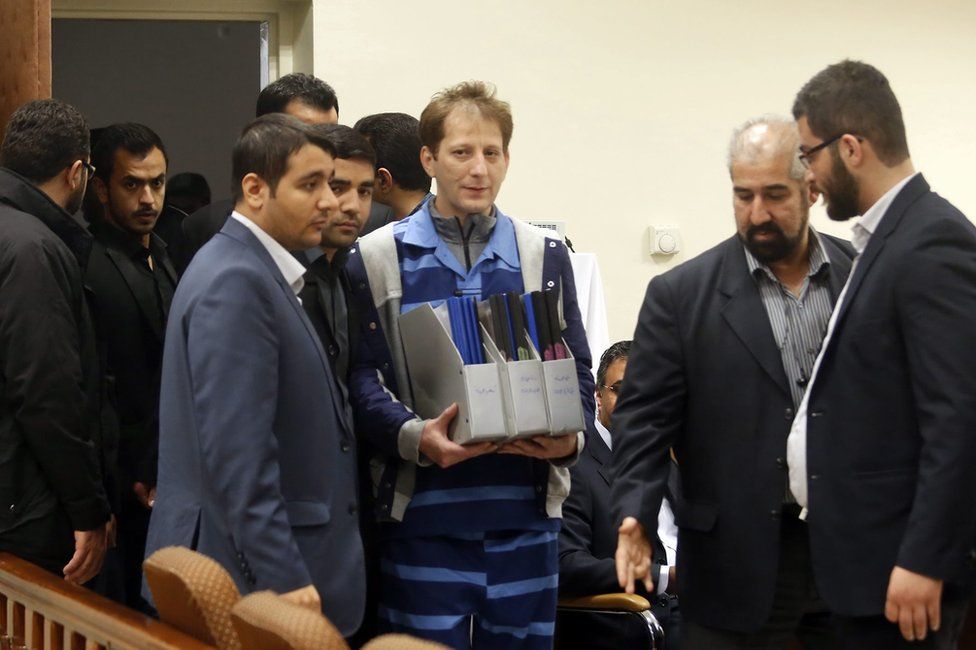Iran commutes billionaire Babak Zanjani's death sentence
- Published

Mr Zanjani (centre) was pictured arriving for his trial in Tehran in 2015
An Iranian billionaire convicted of stealing nearly three billion dollars has had his death sentence commuted to a 20-year jail term.
Babak Zanjani was convicted in 2016 of pocketing money from the oil ministry to circumvent US sanctions on Iran.
He said he had been unable to hand over the cash because of sanctions on him.
The news comes after Iran's judiciary said Mr Zanjani had agreed to work with authorities and his overseas assets had been transferred to Iran.
The announcement was made by a spokesperson for Iran's judiciary, Asghar Jahangir, on Tuesday, according to the judiciary-run Mizan News Agency.
Mr Jahangir said the decision was taken after a request by the head of Tehran's justice department, and approved by Iran's judiciary chief and the country's Supreme Leader, Ayatollah Ali Khamenei.
Iranian media have been speculating over Mr Zanjani's possible release after the judiciary announced in February that Mr Zanjani had agreed to work with the authorities, and that his assets abroad had been identified and transferred to Iran.
Initial assessments were that the billionaire's overseas assets were "sufficient to pay his debts and damages", the head of Iran's judiciary was reported as saying in February.
Mr Zanjani was one of Iran's wealthiest men, and at one point controlled a network of more than 60 companies involved in everything from cosmetics production to oil and banking.
At one stage he valued himself at around $13.5bn (£9.5bn), a huge figure especially for a businessman operating in a country where most of the economy is owned by the state and the private sector is restricted.
He was one of the most high-profile Iranian business figures to be targeted with asset freezes by the US and the EU for his role in helping the Iranian government evade sanctions to sell oil abroad during the presidency of Mahmoud Ahmadinejad.
The sanctions at the time were part of a drive by the international community to put pressure on the government in Tehran over its controversial nuclear programme.
Mr Zanjani was arrested in 2013 for withholding $2.7bn (£2.2bn) of government money, and in 2016 was found guilty of "corruption on earth" - a capital offence used by Iranian judiciary system to punish convicts on a range of charges.
- Published6 March 2016
- Published6 March 2016
- Published22 March 2013